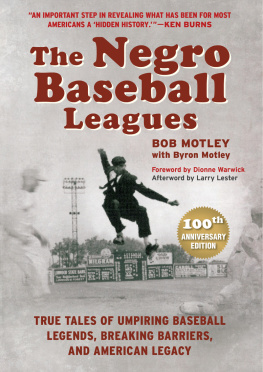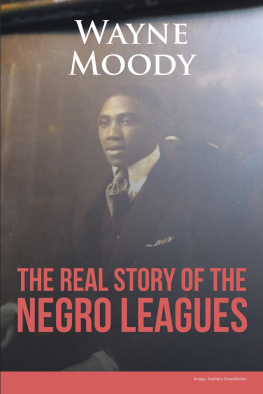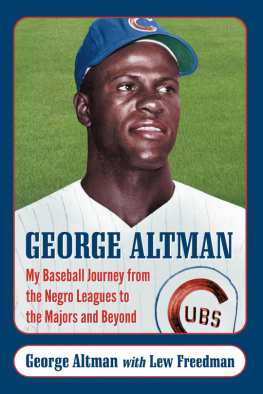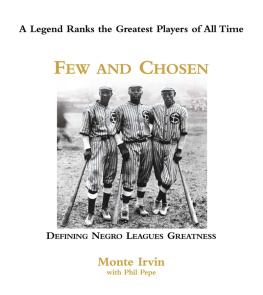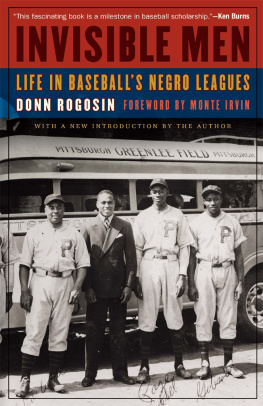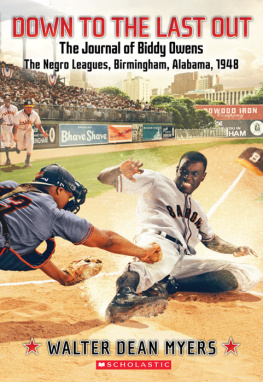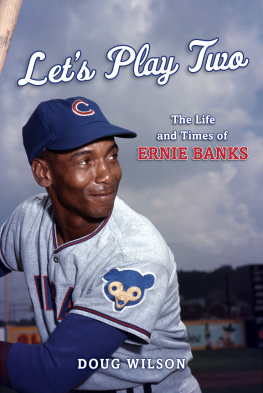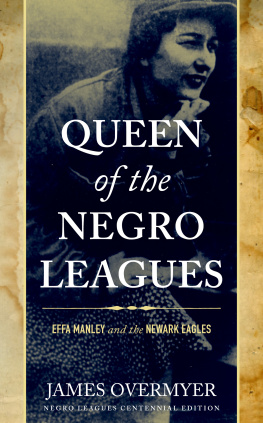Copyright 2007, 2012 by Bob Motley and Byron Motley
All Rights Reserved. No part of this book may be reproduced in any manner without the express written consent of the publisher, except in the case of brief excerpts in critical reviews or articles. All inquiries should be addressed to Sports Publishing, 307 West 36th Street, 11th Floor, New York, NY 10018.
Sports Publishing books may be purchased in bulk at special discounts for sales promotion, corporate gifts, fund-raising, or educational purposes. Special editions can also be created to specifications. For details, contact the Special Sales Department, Sports Publishing, 307 West 36th Street, 11th Floor, New York, NY 10018 or sportspubbooks@skyhorsepublishing.com.
Sports Publishing is a registered trademark of Skyhorse Publishing, Inc., a Delaware corporation.
Visit our website at www.sportspubbooks.com
10 9 8 7 6 5 4 3 2 1
Library of Congress Cataloging-in-Publication Data
Motley, Bob, 1923
Ruling over Monarchs, Giants & Stars : true tales of breaking barriers, umpiring baseball legends, and wild adventures in the negro leagues / Bob Motley with Byron Motley ; foreword by Dionne Warwick ;
afterword by Larry Lester.
p. cm.
Includes index.
ISBN 978-1-61321-059-8 (alk. paper)
1. Motley, Bob, 1923- 2. Baseball umpires--United States--Biography. 3.
African American baseball umpires--Biography. 4. Negro leagues--History. 5.
Baseball--United States--History. 6. African American baseball players. 7.
Baseball players--United States. I. Motley, Byron. II. Title.
GV865.M67A3 2011
796.357092--dc23
[B]
2011042897
Printed in China
For my wife, Pearline
No words can adequately express the love and appreciation I have for you, or the daily joy I experience in sharing my life with you. You are my partner, best friend, and greatest love all wrapped into one. Our lives together these past 55 years have been more than spectacular. We have been well blessed.
This shall be written for the generation to come.
Psalm 102:18
CONTENTS
FOREWORD
By Dionne Warwick
HOW LUCKY WE ARE to have the pleasure of sharing in the life of this most accomplished and incredible man, Bob Motley. I am honored to have been asked to write this brief foreword to this wonderful memoir. I say brief only because the foreword would be as long as the book to say all that I would want to say.
Having had the pleasure of meeting Mr. Motley and being acquainted with him and his family for over 30 years has enriched my life. By his example, he has time and again shown what it means to be a loving and caring family man.
Growing up in New Jersey around several of the Newark Eagles' Negro League players like Monte Irvin, Don Newcombe, and Larry Doby, who all were friends of my dad, gives me a little insight into what Mr. Motley has accomplished. Becoming one of the first umpires of our race to cross the color line into organized baseball gave us another inspiring role model, a reminder that we can all strive for greatness and achieve our goals. And, may I add, with his achievement, the bar was set high for all umpires to rise to.
Becoming the best at whatever he attempted was his goal, and it's apparent this is still his personal mantra.
I know you will enjoy the journey you are about to embark upon, so Enjoy!
PREFACE
By Byron Motley
I AM THE SON OF A LIVING LEGEND. Not everyone can say that.
For a long while, I didn't say it, either. It took me many adult years before I realized or even appreciated my lineage, but I'm glad I finally came to my senses and recognized this remarkable man, Bob Motley, and his generationwhich represents a significant period of our history.
My father has lived a life! You will no doubt discover that within these pages. During his formative years growing up in the segregated South, he endured the hardships of poverty and the dangers of Ku Klux Klan violence. After World War II began, he voluntarily signed up for military service, risking his life for a country that offered only limited freedoms to Negroes. Coming home from war as a decorated veteran, he and thousands of other black service men continued to be treated like second-class citizens in their own country. These incredibly brave men were still restricted from certain jobs, educational opportunities, places they could live, establishments they could enter, water fountains from which they could drink, levels of sports they could aspire to, and the right to vote. Nevertheless, being who they were, these men, my father among them, forged ahead with lofty dreams.
The dream my father held was borne out of his love for umpiring. It led him to the Negro Baseball League, where he worked as a devoted arbiter for a decade. I can personally attest to my father's amazing talents as an umpire, as I was an eyewitness to his extraordinary skill many times throughout my childhood. I was born too late to see him work in the Negro Leagues; but I did accompany my father to Ban Johnson League and college games that he umpired around my hometown of Kansas City, Missouri. I was sometimes embarrassed by the outrageous way in which he called plays, because he was so loud and animated. Many times I purposely played with other kids, far away from the diamond, out of sight. A lot of good that did! Even when I was in an entirely different section of the park, swinging on the monkey bars, playing hide and seek, or just throwing rocks to lull away the time, I could still hear my dad's voice intermittently echoing in the distance as he called balls and strikes.
Despite my initial embarrassment, I was always impressed that many people who attended those games not only came to see the up-and-coming athletes, but also to see that outrageous ump. Spectators loved his colorful style.
It wasn't long before my feeling of embarrassment became one of astonishment. As I grew older, I began to appreciate and accept my father for the individual he wasjust like the many fans Dad had eating out of the palm of his hand had already done. He became a star in my eyes. Sometimes I'd secretly mimic him in the backyard, on playgrounds, or in the privacy of my own room.
In today's celebrity-driven market, Bob Motley could have been a star amongst the men in blue. His flamboyant style on the ball diamond could have caught the eye of some innovative marketing director and landed him an endorsement deal. Alas, like many of the Negro League celebrities of his day, my father was ahead of his time.
In addition to his prowess as a pro sports arbiter, my father has also beenand continues to bea marvelous and engaging storyteller. I mention this gift because without it this book would not exist, nor would I had been inspired to become the historian that I am today I distinctly remember my father reminiscing about his harrowing World War II experiences and his days in the Negro Leagues. Invariably, my mother, sister, and I would look at each other, roll our eyes and smirk as if to say, Oh no, here he goes again! But then, as if hearing the story for the first time, we would be mesmerized by every detail. I didn't know it then, but he was teaching me the importance of remembering our past.
As common as Daddy's stories were in our household, I figured everyone knew about the Negro Leagues. Not until my middle school years did I realize that this was far from true. The history of Americas black league was not taught in school; nor was it talked about in the community. Therefore, I could not fully appreciate its impact on my life or African-American history until years later.
A man with boundless energy, my dad was an active father. He was on hand for


